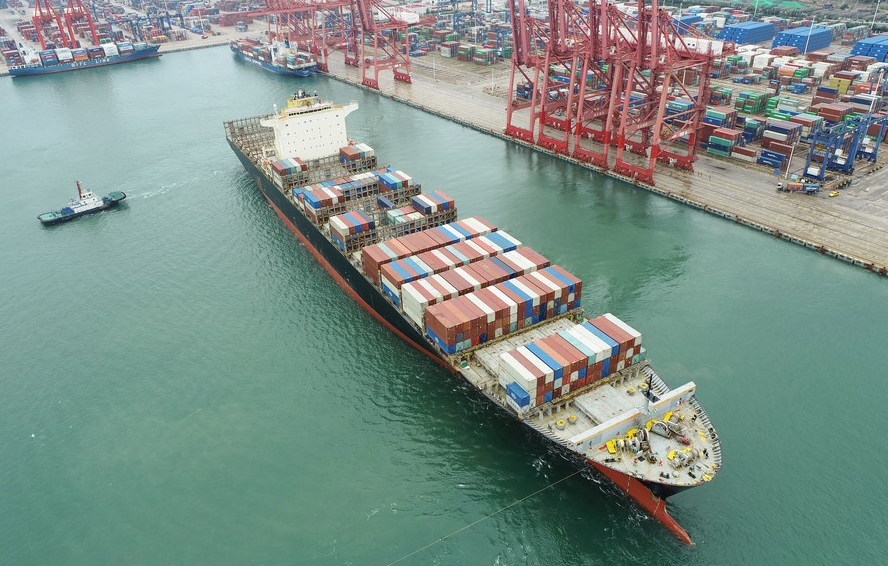IMF chief calls for policy agility, global cooperation to navigate economic 'obstacle course'
2023-02-27 15:29:54

leaving a container terminal in Lianyungang, East China's Jiangsu province.
WASHINGTON -- Kristalina Georgieva, managing director of the International Monetary Fund (IMF), on Thursday called for more policy agility and global cooperation to navigate an economic "obstacle course" as the world enters the third year of the COVID-19 pandemic.
"The (global) recovery continues, but it has lost some momentum," Georgieva said at a virtual media roundtable with reporters. "We are particularly concerned about the higher uncertainty in front of us."
Georgieva noted that there are "three main obstacles" on the path to the global recovery, namely the pandemic, rising inflation and high levels of debt.
"We need to be like a tiger in this year to deal with the complex challenges ahead, and top of mind is indeed policy agility," Georgieva said, referring to the Chinese New Year of the Tiger, which started Tuesday.
Given different levels of inflation and debt as well as different policy space in different countries, "policy actions should be calibrated to country's specific circumstances," she said.
Georgieva's remarks came after the IMF last week projected the global economy to grow by 4.4 percent in 2022, down 0.5 percentage point from the forecast in October 2021, as economies grapple with supply disruptions, higher inflation, record debt and persistent uncertainty.
Georgieva urged central bank officials to strike a delicate balance between addressing inflation and protecting the economic recovery, as some central banks have taken steps to provide clear forward guidance regarding the withdrawal of monetary policy support.
The IMF chief also stressed the importance of global cooperation as the world economy recovers from the pandemic, saying "we have to do more to work together."
"In my view, the biggest lesson from the pandemic is we are interdependent. We need our scientists to serve the whole world. We need our supply chains to not be interrupted so they can deliver more for the benefit of the global economy," Georgieva said.
While the global economy contracted by 3.1 percent in 2020, it was far less severe than a 10 percent contraction the IMF initially predicted, thanks to an incredible global coordination of fiscal and monetary policy actions, especially in the first months of the pandemic, Georgieva noted.
"The IMF provided a platform for this coordination, so what we have seen is a fairly quick uptake in trade," she said, adding those who say globalization is going to reverse maybe take a bit overly pessimistic view.
In response to a question about the Chinese economy, Georgieva said China does have fiscal and monetary policy space to boost economic growth.
"Some steps are taken in that direction to use this space to provide economy with the necessary boost, so we don't see growth being undermined," she said.
"It is also very important to carefully assess and calibrate pandemic-related response, because the pandemic is changing," she added.
